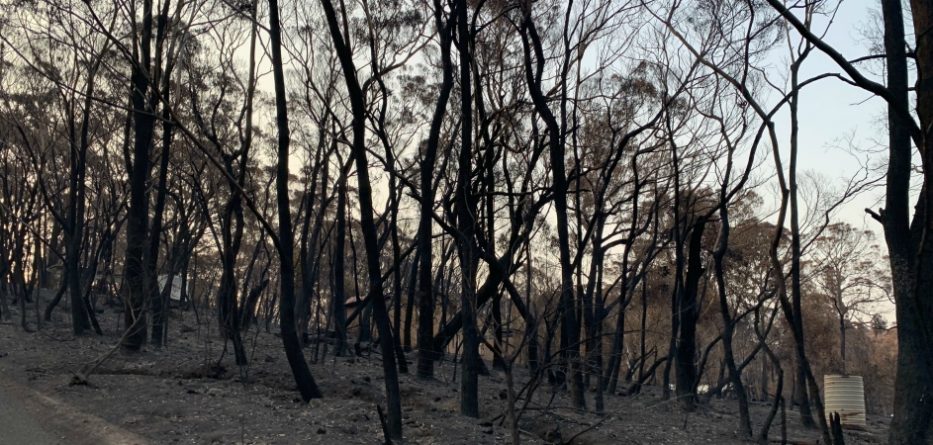The Australian Centre for Christianity and Culture in Canberra will co-host a seminar on Thursday 6 February from 6-8pm to reflect on and inform the way forward on Australia’s climate change policy.
The seminar will be addressed by Australia’s Ambassador for the Environment, Mr Jamie Isbister, followed by a question and answer session.
In the lead up to the seminar Bishop Philip Huggins, President of the National Council of Churches in Australia (NCCA) who attended the UN Climate Change Conference UNFCCC – COP25 in Madrid last month, shared his reflections on the way forward on climate change policy.
“In charity, let us assume we are all learning together about climate change. Most of us are on a learning curve” Bishop Philip Huggins says.
“With the fires still raging and after much loss, aware too that brave and exhausted folk are still hard at work, the national debate about climate change is nevertheless occupying our hearts and minds more and more” the Bishop points out.
Bishop Huggins, who is also Director of the Australian Centre for Christianity and Culture’s Centre for Ecumenical Studies, says that “going to COP25 was an act of faith that I feel was guided by the One who, as an Epiphany prayer conveys, ‘brought the universe into being’ and who has ‘given us this earth to care for and delight in’.
“I knew I had much to learn, even as I tried to make a prayerful, loving and helpful contribution in various seminars and meetings.
“The one thing I had been made aware of was that those who have been much involved in this international framework and program to prevent climate change, need our pastoral care and encouragement.”
Bishop Huggins comments that “it is quite a burden to carry the knowledge of what is happening to the planet at the same time as knowing that the necessary political co-operation is not evolving fast enough.”
Says the Bishop, “coming back from Madrid and into the reality of these terrible fires in the ‘sunburnt country’ we know and love, I am focused by a number of learnings:
- The time is tight to turn around changes. We must all do what we can both in terms of personal lifestyle as well as advocacy for better national policies.
- No nation can solve this on its own. We must co-operate. Each nation must make its best contribution. While the problem is huge and what we can do may seem insignificant, we must still do it. Our good example can help negotiations with the countries termed ‘big emitters’.
- The transition from a carbon-based to a renewable economy is both possible and necessary.
“I learned at the UNCOP that 1000 tonnes of carbon dioxide are going into the atmosphere every second; that the natural ways of removing CO2 from the atmosphere are now only reducing 1 percent of what we are putting in and that so-called ‘geo- engineering solutions’ to this are, at best, decades away from significant implementation and will, even then, have unacceptable downsides, both ethical and practical.
“We cannot allow any distraction from nature-based solutions” says Bishop Huggins.
“Carbon consumption and emissions must be reduced if we are to keep global warming to within 1.5 degrees above pre-industrial levels.
“The framework for achieving this is present in the United Nations Framework Convention on Climate Change (UNFCCC) and its 2015 Paris Agreement.
“Scaled up Nationally Determined Contributions (NDCs) are due by August 2020, before the next UN Conference of the Parties – UNCOP 26 – in Glasgow this coming November 9-20. These are contributions which, in the principle of ‘subsidiarity’, nations volunteer freely for the common good” explains Bishop Huggins.
“It is a consensus model, recognising that this is the only politically realistic model. The UNCOP model has to trust that each nation will do their best, recognising we are in a time which requires an unprecedented level of sustained co-operation.
“What is needed is the kind of compassionate and skilled co-operation we have seen through this bush-fire crisis in Australia, scaled up and sustained internationally for some years’, the Bishop says.
Bishop Huggins together with Bishop Stephen Pickard, Executive Director of the Australian Centre for Christianity and Culture have invited Australia’s Ambassador for the Environment, Mr Jamie Isbister, to speak at the Canberra seminar on 6 February 2020 to better inform the way forward on climate change policy.
Ambassador Isbister led Australia’s diplomatic delegation at UNCOP25. “He ensured those present in Madrid received helpful briefings during December’s COP meeting and will continue that skilled and informed dialogue on 6 February, as together we all think about next steps” comments Bishop Huggins.
With thanks to the National Council of Churches in Australia.








